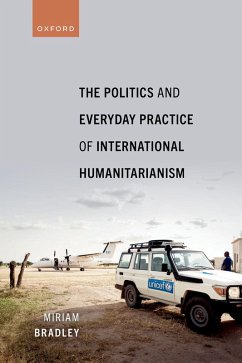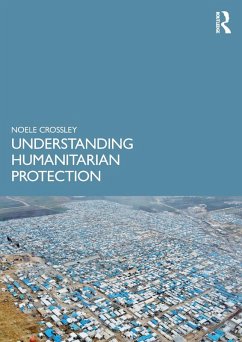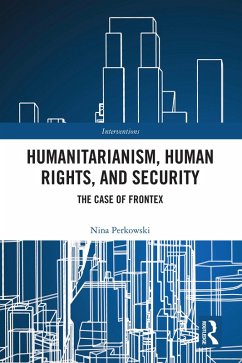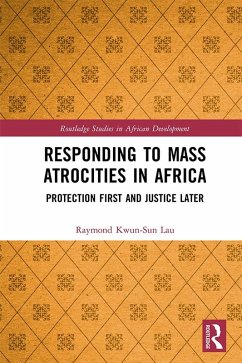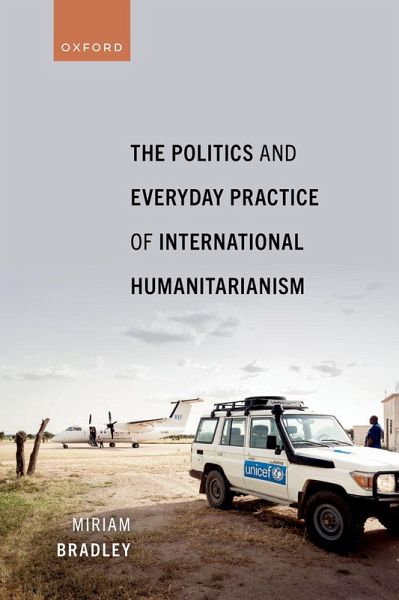
The Politics and Everyday Practice of International Humanitarianism (eBook, ePUB)
Versandkostenfrei!
Sofort per Download lieferbar
27,95 €
inkl. MwSt.
Weitere Ausgaben:

PAYBACK Punkte
14 °P sammeln!
This is an open access title available under the terms of a CC BY-NC-ND 4.0 International license. It is free to read at [Oxford Scholarship Online and offered as a free PDF download from OUP and selected open access locations. Through a combination of detailed case studies of humanitarian emergencies and thematic chapters which cover key concepts, actors and activities, this book explores the work of the largest international humanitarian agencies. Its central argument is that politics play a fundamental role in determining humanitarian needs, practices, and outcomes. In making this argument,...
This is an open access title available under the terms of a CC BY-NC-ND 4.0 International license. It is free to read at [Oxford Scholarship Online and offered as a free PDF download from OUP and selected open access locations. Through a combination of detailed case studies of humanitarian emergencies and thematic chapters which cover key concepts, actors and activities, this book explores the work of the largest international humanitarian agencies. Its central argument is that politics play a fundamental role in determining humanitarian needs, practices, and outcomes. In making this argument, the book highlights the many challenges and dilemmas facing humanitarian agencies in the contemporary world. It covers significant ground-temporally, geographically and thematically. The book is divided into four sections, providing a wide-ranging survey of contemporary international humanitarianism. The first section begins by presenting chapter-length case studies of the international responses to eleven humanitarian emergencies from the 1960s to the present day across Africa, Asia, the Caribbean and Europe; the second explains key concepts and trends in international humanitarianism; the third discusses how the work of international humanitarian agencies interacts with a range of other actors-including media, celebrities, donors, states, civil society, military forces and armed groups-who have significant impacts on humanitarian response and outcomes; and the fourth turns to the operations and activities undertaken by aid agencies on a daily basis. Ideally suited as a high-level introduction for students of international humanitarianism, the empirical detail and lucid analysis additionally make The Politics and Everyday Practice of International Humanitarianism an invaluable point of reference for more established scholars.
Dieser Download kann aus rechtlichen Gründen nur mit Rechnungsadresse in A, B, BG, CY, CZ, D, DK, EW, E, FIN, F, GR, HR, H, IRL, I, LT, L, LR, M, NL, PL, P, R, S, SLO, SK ausgeliefert werden.





